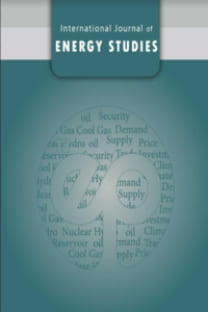Coal: A Realistic Hope For Turkey’s Future Energy Security?
As it is well known, energy is the basic element of the social and economic development for any country. Energy consumed in today’s world is produced mainly from fossil fuels such as oil, natural gas, largely from coal (87 %), from nuclear and as a smaller proportion from renewable (13 %) resources. European countries have been the biggest energy importers but lately, China seems to carry the flagship as it is going to be the major importer by 2030. Russia is expected to keep its position as the biggest energy exporter country in the world, as it is now. Turkey’s priority on its energy policies is to achieve supplying cheap and quality energy sources continuously and reliably. However, Turkey’s energy security has become controversial since some of the analysts recently addressed the issue that Turkey covers its energy demand largely from imported sources. This study analyzes the status of domestic coal reserves and production facilities in Turkey as if it can be an alternative to the imported energy sources.
Keywords:
Coal, Turkey’s Future Energy Security,
___
- Dagistan, H., “Türkiye Kömür Aramaları”, 2012, MTA Yayınları, Volume 16, Pages 35-45. Koç, E., Şenel, M. C., “Dünyada ve Türkiye’de Enerji Durumu - Genel Değerlendirme”, 2013, Mühendis ve Makina, Volume 54, 639, Page 32-44. Koç, E., Kaplan, E., “Dünyada ve Türkiye’de Genel Enerji Durumu-I Dünya Değerlendirmesi”, 2008, Termodinamik Dergisi, Volume 187, Page 70-80. TEIAS, 2015; accessible from www.teias.gov.tr/ebulten/makaleler/2014/Dunyada_ve_Turkiyede_Enerji_Gorunumu.pdf World Energy Council, “Energy Report”, 2014, Page 181. IEA, 2015; accessible from http://www.iea.org7/
- Yayın Aralığı: Yılda 4 Sayı
- Başlangıç: 2016
- Yayıncı: Türkiye Enerji Stratejileri ve Politikaları Araştırma Merkezi (TESPAM)
